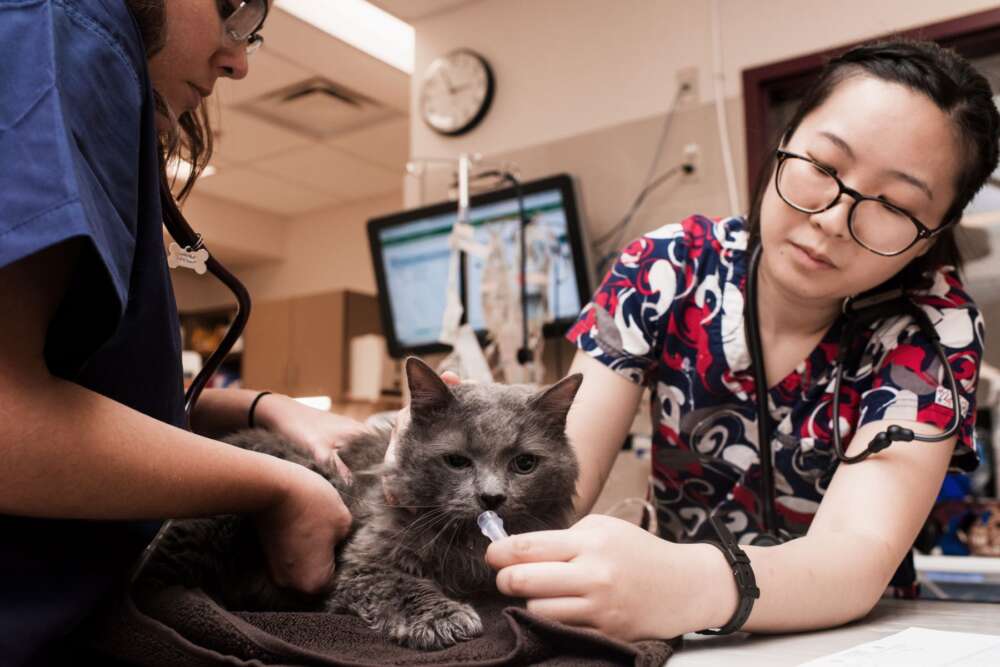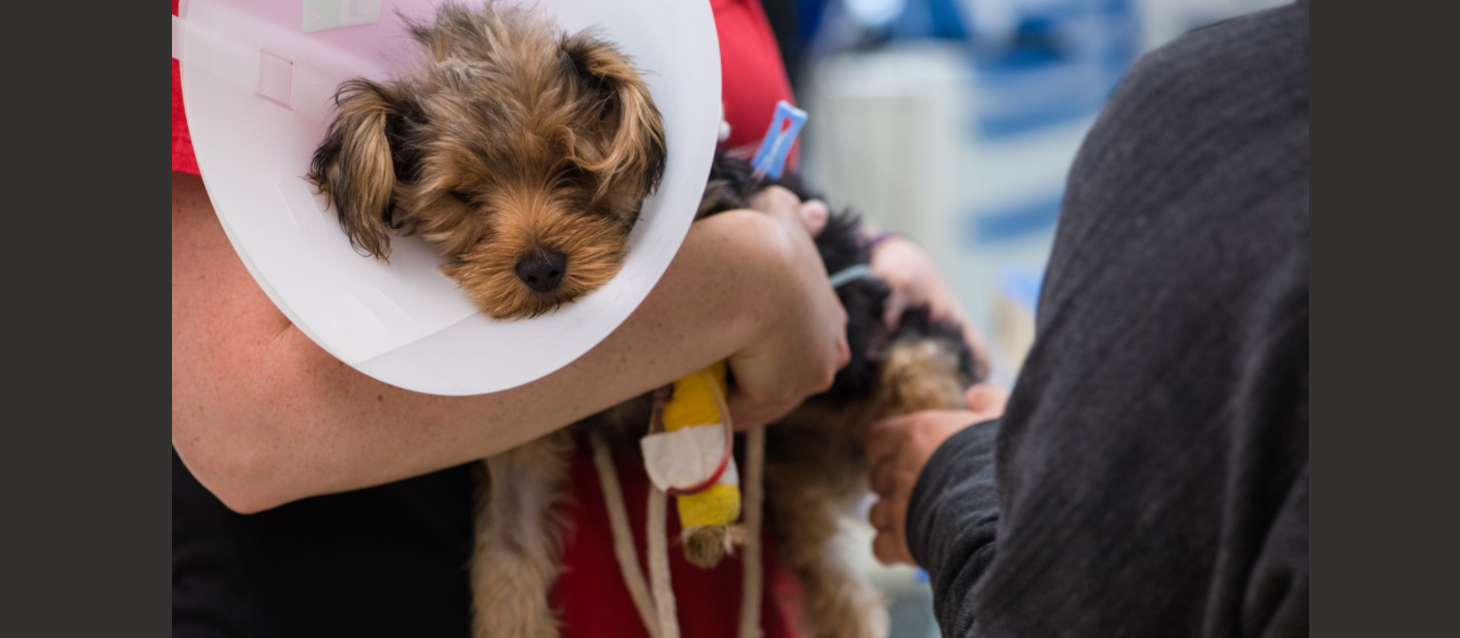With more Canadian pet owners seeking advanced treatment options for companion animals, a new multimillion-dollar project will support critical care and specialty veterinary services at the University of Guelph’s Ontario Veterinary College (OVC).
OVC Pet Trust has launched the $8.36-million infrastructure project to accommodate complex case referrals amid a current shortage of veterinary professionals and an increase in pet ownership during the COVID-19 pandemic.
Improving the space to allow for leading-edge approaches to veterinary care and education in the intensive care unit (ICU) of OVC’s Health Sciences Centre (HSC) is the goal of the funding project, to be supported with a $4.2-million bequest from the late Catherine Bergeron, a long-time OVC Pet Trust supporter. The unit will be named the Catherine Bergeron Centre for Urgent and Critical Care.
“The new facilities will contribute to optimal opportunities and learning outcomes for our students and our trainees while ensuring companion animals can access the very best medical care available – across Canada and around the world,” said OVC dean Dr. Jeff Wichtel.
The HSC, which also serves as the medical training ground for future veterinarians and veterinary specialists, has seen more than 21,000 companion animal patient visits over the past year alone. Many of these cases arrive in critical condition, with 60 per cent of pets needing complex, critical or specialty care.
Catherine Bergeron Centre for Urgent and Critical Care

Currently, OVC’s ICU houses inbound emergency cases and critically ill patients needing quiet healing time and round-the-clock supervision in an 1,850-sq.-ft. space.
The expansion will include a dedicated space for veterinary emergency services and will expand the ICU by 2,231 sq. ft. — increasing space in this unit by 50 per cent.
The expansion will allow for flexible space to adapt to patient care needs and will incorporate leading-edge design elements, such as zoned lighting for improved patient rest. Increased privacy in the ICU will allow pet owners to visit animals unable to move for end-of-life care.
Through these upgrades, OVC will also gain two specialty suites for its neurology and ophthalmology services.
“Our team consists of highly trained, board-certified specialists that work through an integrated approach to diagnose and treat complex medical cases,” said Dr. Stephanie Nykamp, OVC associate dean, clinical program. Clinical specialties include anesthesiology, cardiology, internal medicine, surgery, diagnostic imaging, neurology, oncology and ophthalmology.
“Each specialty suite will offer two exam rooms, as well as dedicated space for the care teams and student learning. Should the needs of the hospital change over time, these suites are designed to be flexible and could be adapted to other specialties in future.”
To learn more about the expansion of OVC Health Science Centre’s critical care and specialty services, and to support this important initiative, visit the Building a Brighter Future for Pets website .
Donors can double the impact of their gift today. Thanks to a generous donor, all gifts to Critical Care and Specialty Services by Dec. 31, 2021 will be matched dollar for dollar.
About OVC Pet Trust
OVC Pet Trust, founded in 1986 at the Ontario Veterinary College, University of Guelph, is Canada’s first charitable fund dedicated to the health and well-being of companion animals.
OVC Pet Trust honours the relationship between pets and their people and veterinary caregivers by raising funds to support innovative discoveries that improve the prevention, diagnosis and treatment of diseases of pets.
Funds also help train veterinarians to provide exceptional healthcare for pets and provide equipment and facilities for the Ontario Veterinary College. Learn more at www.pettrust.ca.
